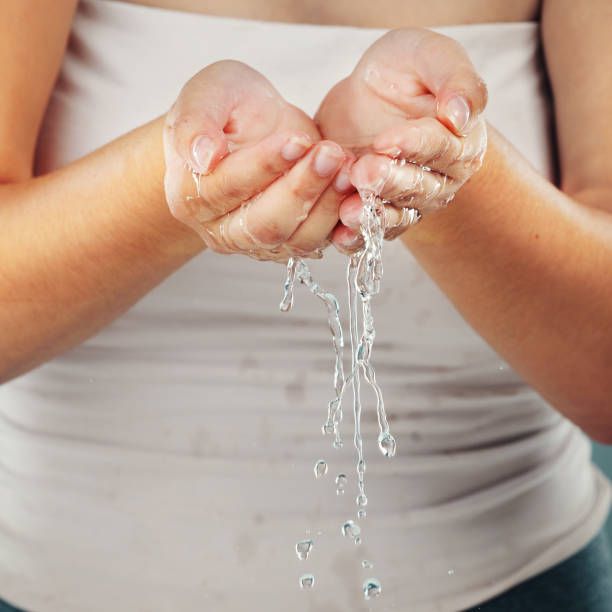Introduction
Hydration – The Lifesaving Elixir: Understanding Hydration’s Crucial Role
Hydration – Water is often referred to as the elixir of life, and for good reason. It is essential for survival, playing a vital role in virtually every bodily function. From regulating temperature to ensuring the proper functioning of organs, hydration is not just about quenching thirst; it’s about sustaining life. In this article, we will delve into the world of hydration, exploring its importance, benefits, and the various ways to maintain it effectively.

My journey toward understanding hydration began during a hiking trip in Arizona’s arid landscapes. The experience of being under-hydrated in a scorching environment was a stark reminder of water’s significance. Similarly, global water consumption patterns and the struggle for access to clean water highlight its value in our daily lives.
This comprehensive guide will walk you through the basics of hydration, its myriad benefits, recommended intake guidelines, and the diverse sources from which we can hydrate our bodies. Let’s dive in and unravel the mysteries of this simple yet profoundly impactful act of drinking water.
I. Understanding Hydration
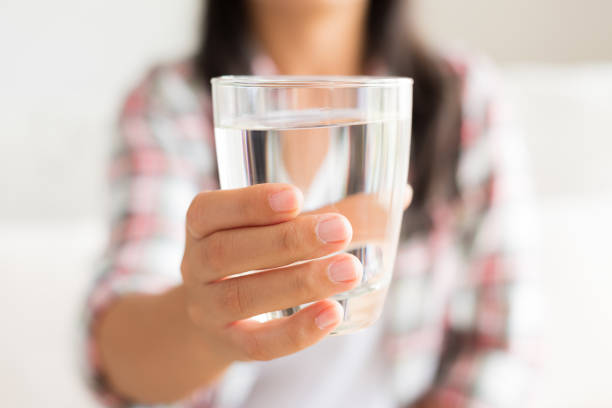
The Essence of Hydration: More Than Just Drinking Water
Hydration: A Vital Bodily Requirement
Hydration is the process by which water is absorbed by the body’s cells, tissues, and organs. It’s essential for maintaining the balance of bodily fluids, which are crucial for functions such as digestion, absorption, circulation, saliva production, nutrient transportation, and maintenance of body temperature.
Unveiling the Science: How Hydration Powers Our Body
The human body is composed of approximately 60% water, making hydration fundamental to our existence. Every living cell, tissue, and organ in our body requires water to function effectively. For instance, water helps the brain manufacture hormones and neurotransmitters, aids in the flushing out of waste through urine, and keeps mucosal membranes moist.
Dehydration: A Silent Threat
Dehydration occurs when the body loses more fluid than it takes in. It can result from neglecting water intake, diarrhea, or excessive sweating. Symptoms include thirst, dry mouth, fatigue, dizziness, confusion, and kidney problems. Severe dehydration can cause seizures and life-threatening complications. Therefore, it’s crucial to stay alert to the signs of dehydration and keep the body well-hydrated at all times.
II. The Benefits of Staying Hydrated
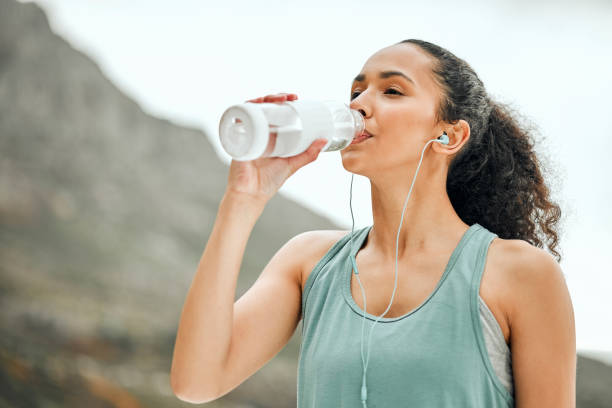
Revitalize Your Health: The Multifaceted Benefits of Hydration
Physical Health: The Foundation of Well-being
Staying well-hydrated is critical to maintaining optimal physical health. Adequate hydration aids in digestion, preventing constipation and helping the body absorb nutrients effectively. It also plays a crucial role in kidney function, assisting in the elimination of waste products and reducing the risk of kidney stones.
Mental and Cognitive Edge: Clarity and Focus
Hydration isn’t just about physical well-being; it profoundly impacts mental and cognitive functions. Adequate water intake has been linked to improved concentration, alertness, and mood stabilization. Dehydration, on the other hand, can lead to difficulties in focusing, memory, and mood swings.
Guarding Against Diseases: Long-Term Health Implications
Consistent hydration may also contribute to long-term health benefits. It helps prevent certain types of headaches, including migraines and can be a factor in reducing the risk of chronic diseases like urinary tract infections, hypertension, and kidney disease.
III. Hydration Needs and Recommendations
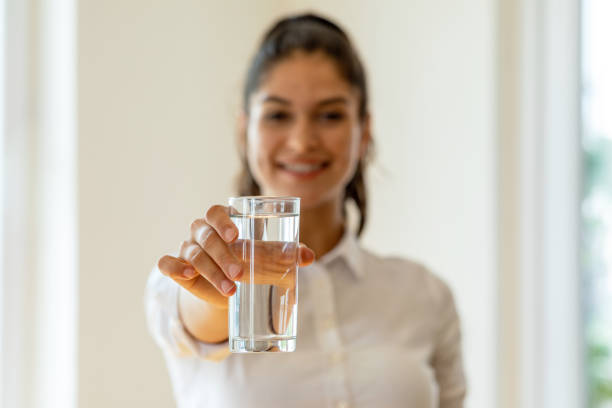
Tailoring Hydration: Understanding Individual Needs
Water Intake: Not One-Size-Fits-All
Daily water intake recommendations vary based on age, gender, and activity level. The recommended daily water intake for men is about 3.7 liters (125 ounces), and for women is about 2.7 liters (91 ounces). But these needs increase with physical activity and in hotter climates.
Exceptional Circumstances: Unique Hydration Needs
Certain life stages and conditions require special hydration considerations. For instance, pregnant and breastfeeding women need more water to stay hydrated. Athletes, especially those engaged in prolonged or high-intensity exercise, might need additional fluid intake to compensate for sweat loss. Similarly, individuals with certain medical conditions might have unique hydration requirements.
Assessing Hydration Levels: Listening to Your Body
Staying attuned to your body’s signals is critical in determining hydration levels. Signs of adequate hydration include rarely feeling thirsty and producing colorless or light yellow urine. It’s also essential to adjust fluid intake during illness, in hot weather, or when engaged in vigorous physical activity.
IV. Sources of Hydration
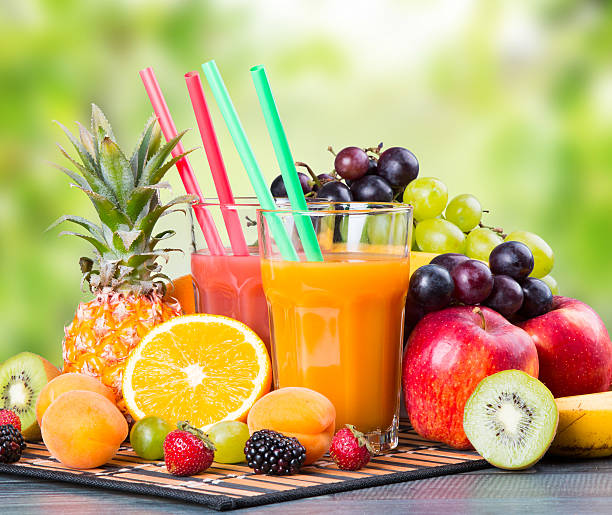
Diversifying Hydration: Beyond Just Water
The Primacy of Water
While water is the most efficient and direct way to hydrate, it’s not the only source. It’s calorie-free, cost-effective, and readily available, making it the ideal choice for most hydration needs.
The Mixed Bag of Beverages
Other beverages like tea, coffee, and sports drinks can also contribute to hydration. However, it’s essential to consider their caffeine content and added sugars. For example, sports drinks can be beneficial during high-intensity exercise but aren’t necessary for average daily hydration.
Food as a Hydration Source
Foods with high water content, mainly fruits and vegetables, can significantly contribute to total water intake. Cucumbers, tomatoes, oranges, and watermelons are not only nutritious but also help maintain hydration levels.
V. Hydration Myths and Misconceptions
Dispelling the Myths: The Truth About Hydration
Debunking Common Myths
One of the most pervasive hydration myths is the “eight glasses a day” rule. While it’s a helpful guideline, hydration needs vary. Another myth is that caffeine dehydrates you. While caffeine has a mild diuretic effect, moderate coffee or tea consumption doesn’t significantly dehydrate you.
Understanding Electrolytes
Electrolytes, including sodium, potassium, and magnesium, are crucial for hydration as they help maintain fluid balance in the body. Sports drinks can be beneficial during prolonged exercise but are not necessary for everyone.
The Reality of Overhydration
Hyponatremia, or overhydration, occurs when the body’s electrolyte levels are diluted by excess water. It’s rare but can be dangerous, especially for endurance athletes. Therefore, it’s crucial to maintain a balance between water intake and electrolyte levels.
VI. Hydration for Different Populations and Activities

Customizing Hydration: Tailoring to Needs and Activities
Children and the Elderly
Children and older adults are more susceptible to dehydration. It is critical to offer children regular water breaks and hydrating snacks. Older people may have a diminished sense of thirst and require reminders to drink water throughout the day.
Athletes and Hydration
For athletes, hydration is crucial for optimal performance and recovery. During intense exercise, it’s essential to replace fluids and electrolytes lost through sweat. Prehydration before events and rehydration afterward are crucial.
Extreme Weather Considerations
In hot weather, increased sweating makes hydration crucial. In cold weather, the risk of dehydration still exists, as the body works hard to maintain its temperature. Adjusting fluid intake based on weather conditions and physical exertion is necessary.
VII. Practical Hydration Tips
Making Hydration a Habit: Simple and Effective Strategies
Increasing Daily Water Intake
To maintain good health, try to include plenty of water-rich foods such as fruits and vegetables in your daily diet. Keep a water bottle handy and set regular drinking reminders. To make water more appealing, flavor it with natural ingredients like lemon or cucumber.
Maintaining Hydration on the Go
Carrying a reusable water bottle is vital when traveling or on busy days. Planning water breaks and choosing hydrating foods when eating out are also effective strategies.
Technological Aids for Hydration
There are various apps and intelligent water bottles available that can monitor your water intake and remind you to drink regularly. These tools help remind busy individuals to stay hydrated.
VIII. The Global Perspective on Hydration

Water: A Global Challenge
The Crisis of Water Scarcity
Water scarcity affects billions globally, impacting hydration, health, and agriculture. Many regions still lack access to clean water, highlighting the importance of sustainable management.
Environmental Impacts
The environmental cost of bottled water, including plastic waste and carbon footprint, is considerable. Opting for filtered tap water and reusable bottles can significantly reduce this impact.
Future Trends in Hydration
Advancements in technology and increased awareness are leading to more sustainable and efficient ways of managing and consuming water. The future of hydration lies in balancing individual health needs with global environmental responsibilities.
Conclusion
Staying Hydrated: A Personal and Collective Responsibility
In conclusion, understanding and maintaining proper hydration is crucial for individual health and well-being. From debunking common myths to adopting practical hydration strategies, this guide aims to empower you to make informed choices about your water consumption. As we reflect on our hydration habits, let’s also consider the broader global context and our role in ensuring sustainable water use.

FAQ Section
1- How much water should I drink each day?
Your daily water intake depends on factors such as age, gender, activity level, and climate. While eight glasses a day is a general guideline, your individual needs may vary.
2- Can I drink too much water?
Hyponatremia occurs when one drinks more water than their body can excrete, leading to low sodium levels. This condition is rare but dangerous.
3- Does coffee dehydrate you?
While coffee has a diuretic effect, moderate consumption doesn’t significantly affect overall |hydration| levels.
4- Are sports drinks better than water for hydration?
For most people, water suffices. Consuming sports drinks can be advantageous for individuals engaging in prolonged or intense physical activities as they can help replenish lost electrolytes.
5- How do I know if I’m hydrated?
Signs of proper |hydration| include rarely feeling thirsty and having light yellow or colorless urine.
6- Can food contribute to hydration?
Many fruits and vegetables are hydrating due to their high water content.
7- What are electrolytes, and why are they important?
Electrolytes, like sodium and potassium, are minerals that help regulate fluid balance in the body. They are crucial for |hydration|, especially during intense physical activity or in hot climates.
8- How can I remember to drink water?
Setting reminders, keeping a water bottle handy, and using |hydration-tracking| apps can help.
9- Is it necessary to filter tap water?
Tap water safety varies, but a filter improves taste and purifies.
10- What are the environmental impacts of bottled water?
Bottled water contributes to plastic waste and has a higher carbon footprint compared to tap water, making it a less environmentally friendly option.
Additional Resources
For those seeking more information, here are some valuable resources:
- Links to |hydration| tracking apps and innovative water bottle technologies.
- A list of recommended readings, including scientific articles on hydration and health.
- Contact details for professional consultations on |hydration| and nutrition.
Stay informed, stay hydrated, and embrace a healthy lifestyle!
Read also.. Unraveling the Threads of Stress: Causes, Effects, and Effective Coping Strategies

